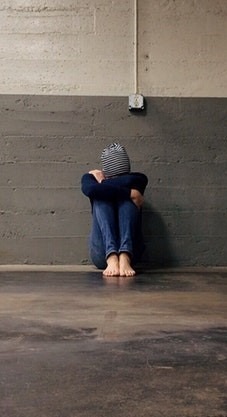How Alcohol Affects Inhibitions & The Consequences
Drinking can be a lighthearted and fun experience for many, yet there are serious risks involved that must be considered. Lowered inhibitions due to intoxication can have long-lasting effects on your health and even those you love. Consider how alcohol impairs your judgment or causes behaviors that come with negative consequences. By understanding your responses to drinking, you can seek help or adjust your behaviors to promote your own safety.
Further Intoxication
Lowered inhibition caused by drinking can impact behaviors that lead to more drinking. This pattern can lead to what are known as “blackouts”, where your memory is impaired after your night. The more alcohol is in your system, the less cognizant you are of your intoxication. What feels “normal” may actually turn out to be extremely dangerous levels of drunk if you are unaware of how much you are consuming. One way to remain in control of the amount you drink is to learn how to predict your blood alcohol concentration. When you can plan in advance before drinking, you are less likely to overdo it.
Be aware of behaviors such as:
- Overspending money on excessive drinks
- Ignoring requests to stop drinking
- Drinking different types of alcohol than usual
- Nausea or irritability
Unhealthy Food Choices
Drinking affects both physical cravings and decision-making regarding food. People who follow strict or healthy diets tend to avoid drinking as it can “reverse” their usual discipline. You are more likely to eat junk food or food you usually avoid if alcohol is in your system. You are also at risk of eating excessive amounts as the receptors in your brain are inhibited in telling your stomach when it’s full. Binge drinking can also have long term effects on your weight if your inhibitions are regularly lowered when you make food choices.
Consider getting help if you often:
- Regret food choices you make while intoxicated
- Overspend on junk food after drinking
- Give into cravings the day after due to withdrawals
Effects on Responsibilities
Psychological effects of alcohol far exceed consequences while you are presently drinking. Regular alcohol use can inhibit your participation in major life responsibilities such as attending work, spending time with others, and even financial needs. Consistent drinking can affect your work attendance and performance, whether your judgment inhibits your decision to stay out too late or the effects of alcohol are still present the day after. One sign of alcohol dependence is prioritizing drinking over time with family and friends, or spending money on alcohol rather than bills. Take care to learn how your major life decisions are affected by alcohol if it becomes a serious issue.
Look out for:
- Anxiety around paying bills due to money spent drinking
- Avoidance of family time
- Depression or sadness during regular life activities
- Low performance at work following drinking

Emotional Responses
Alcohol can make a person react differently or more dramatically to emotional events than normal. This is due to the way alcohol impacts your brain’s responses and mood without allowing your judgment to rationalize your emotions. Perhaps you find yourself in more arguments or in anger towards people you love. Maybe you experience sadness or tears more often when you drink. Awareness around alcohol and inhibited emotional judgment is important, as it can be dangerous to use alcohol to “numb” negative emotions.
Consider recovery or treatment if you:
- Use alcohol to hide emotions or avoid them
- Dramatically respond to otherwise normal triggers
- Get into frequent fights or breakdowns while drinking
- Feel anxious or negative thinking more when intoxicated
Reactions in Crisis
It is no secret that the inhibitions caused by alcohol are enough to cause serious driving laws, research, and regulations to prevent drinking during important tasks. Unfortunately, alcohol is still a threat to inhibitions during times of emergency. Consider the possibility of someone you love needing your help, or injuring yourself while drinking. These scenarios are among many that illustrate the importance of being mindful of your lowered inhibitions and cognitive responses to crises even if alcohol is legally allowed. You should always be aware enough to either get help or protect someone else if need be.
Get treatment if you are unable to stop drinking in cases where:
- You or someone you love needs medical help
- You are emotionally needed to support someone
- You are responsible for your safe arrival home
Understanding how inhibitions caused by alcohol impact specific areas of your life can be a wake-up call to seek help or change your behaviors for the better. Whether it be overspending a few dollars on drinks you don’t need or missing major life events due to drinking, alcohol can cause critical damage by changing your judgment. Do your best to remain self-aware and seek help if any of the above scenarios apply to you.

